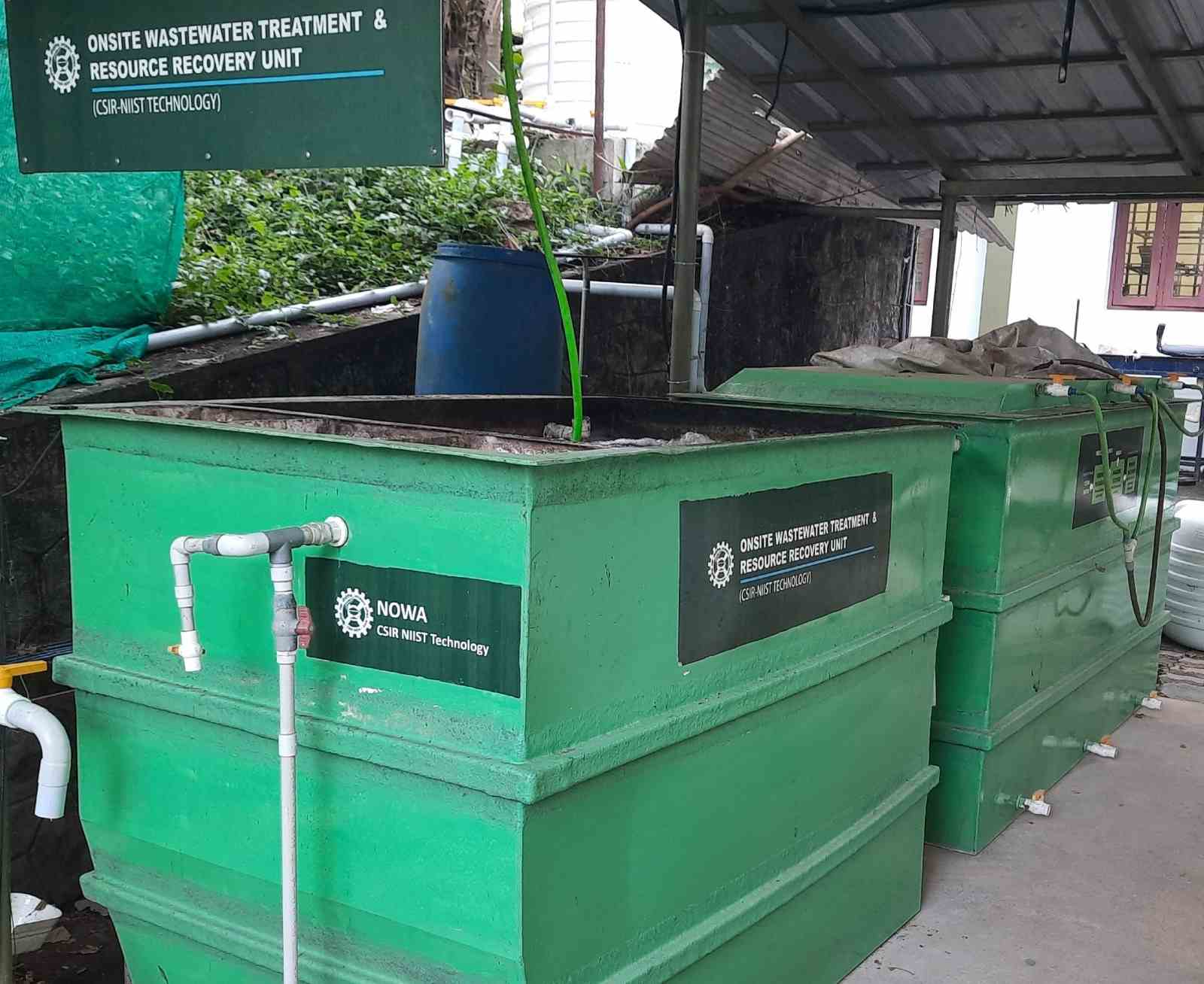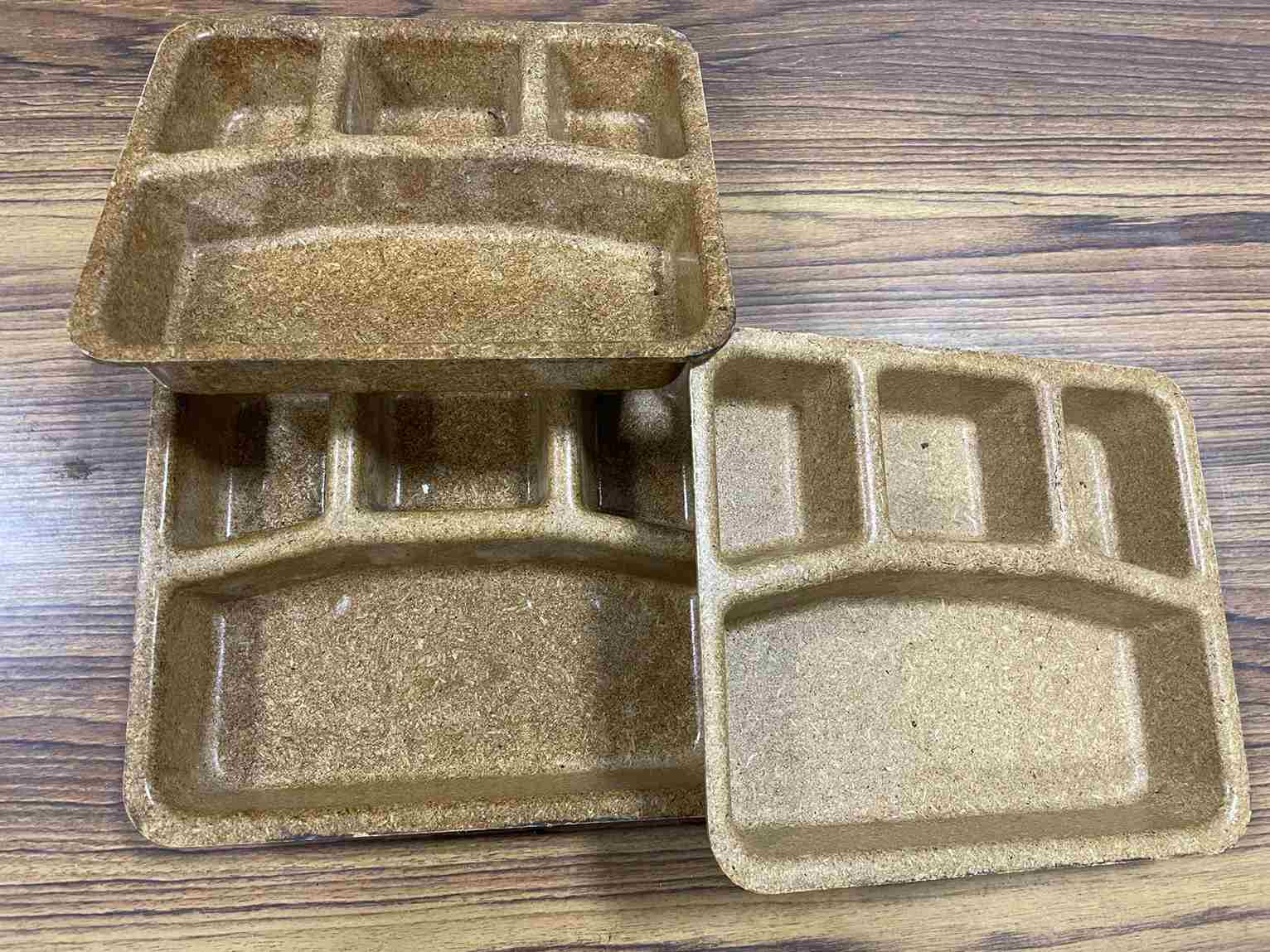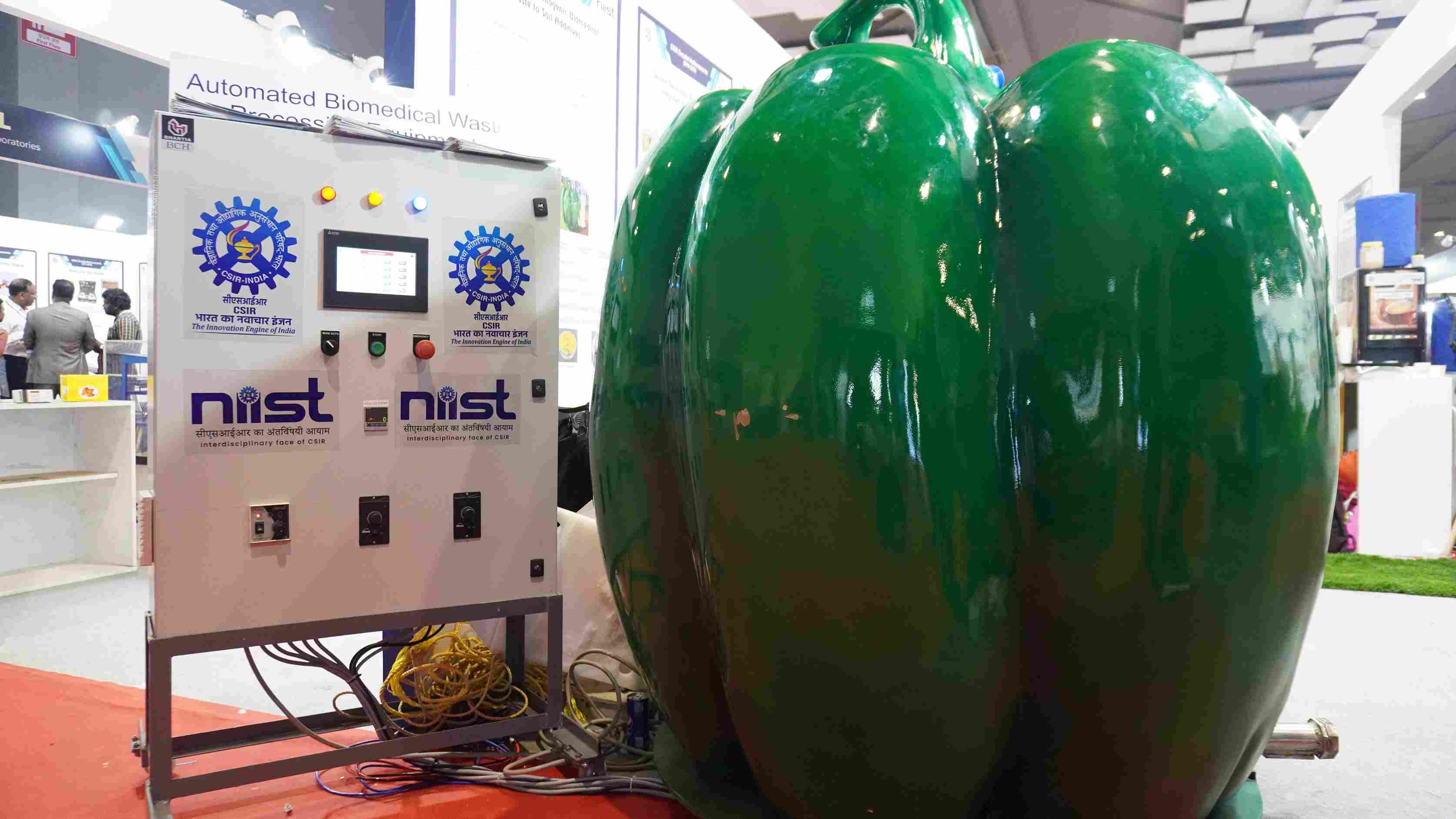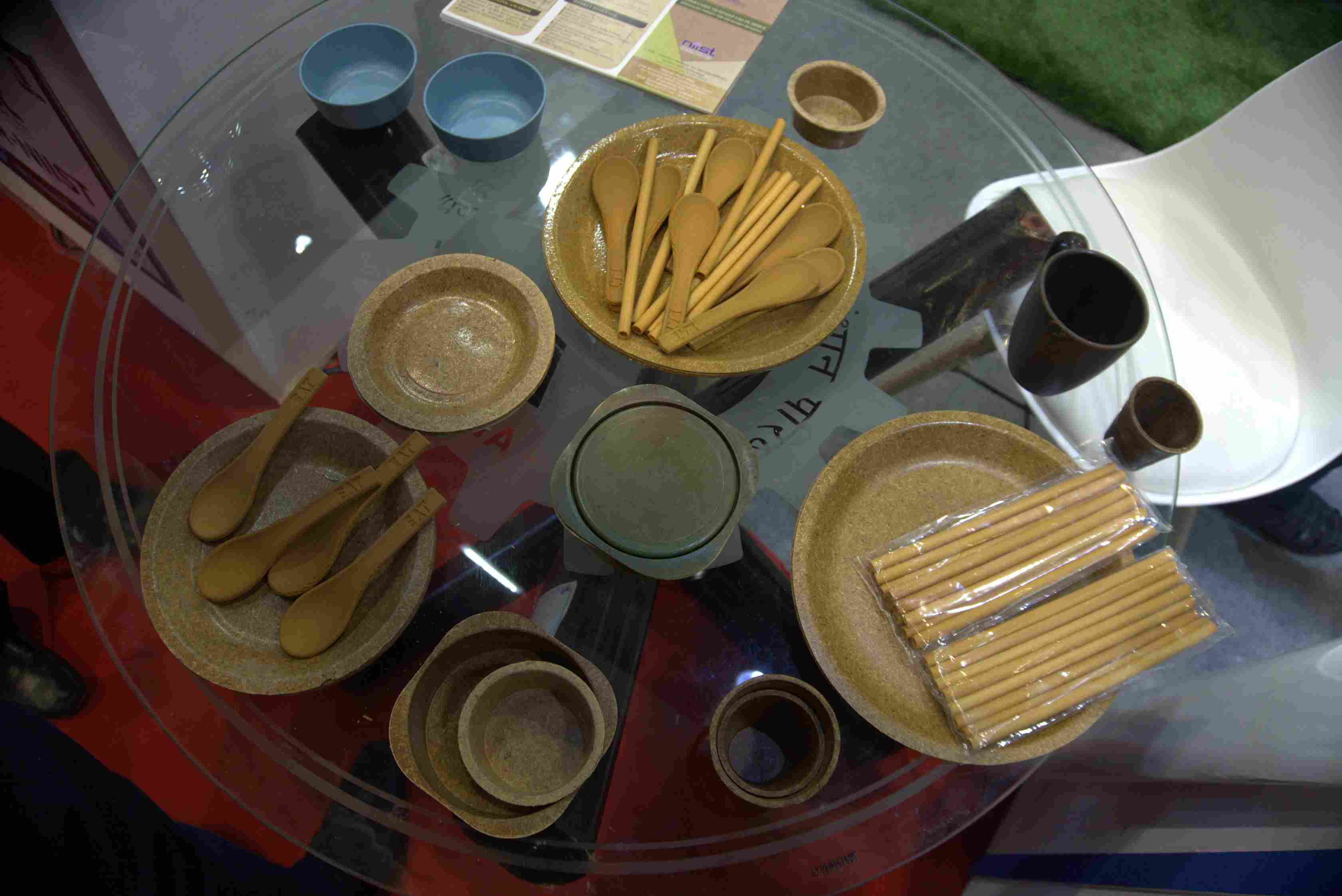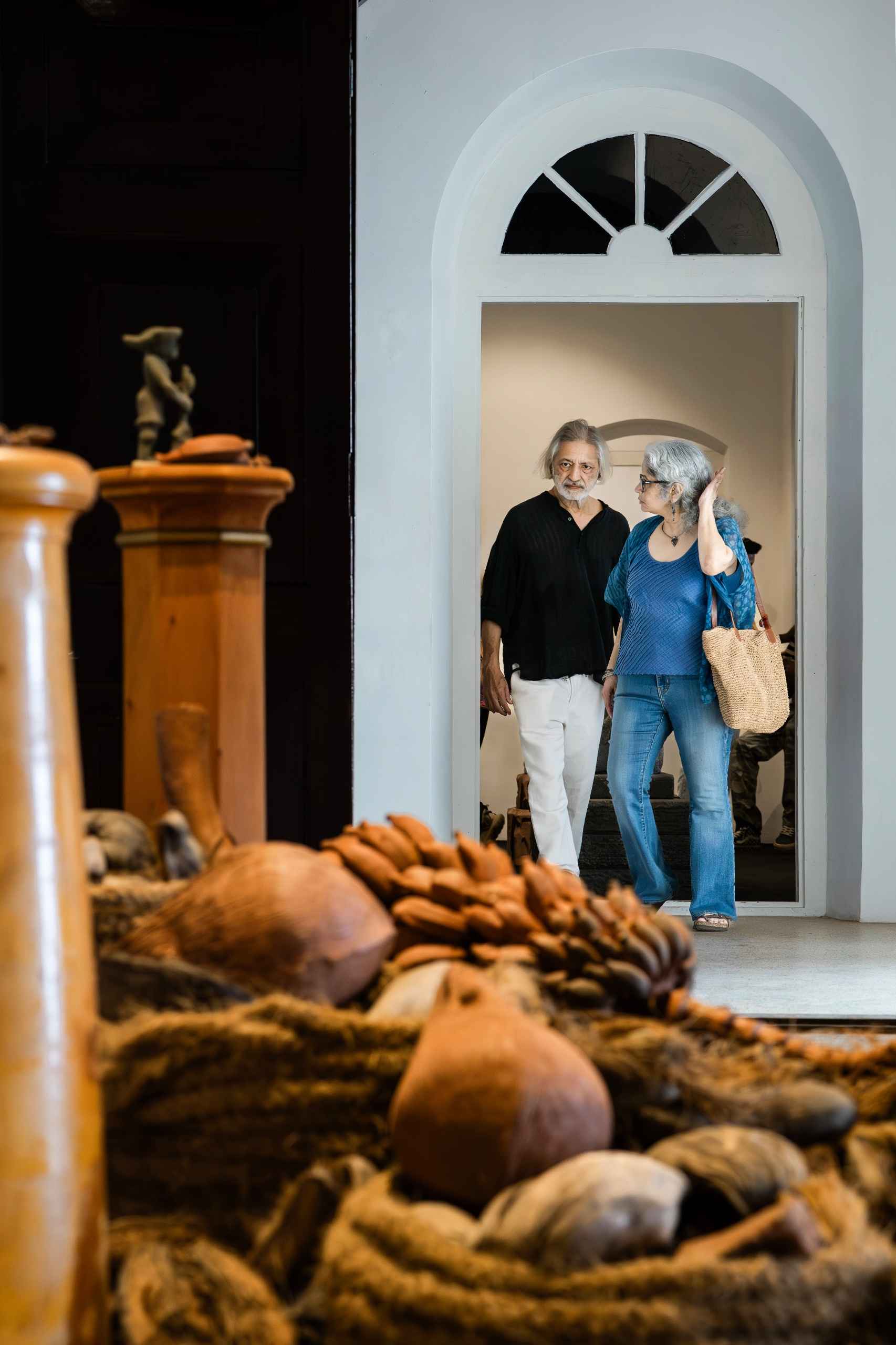NIIST to showcase technology to turn biomed waste into soil additives
CSIR Foundation Day celebrations in New Delhi on Sept 26-27
New Delhi / September 26, 2023
New Delhi, September 26: In a path-breaking development, Thiruvananthapuram-based NIIST has developed an innovative solution for safe and sustainable management of pathogenic biomedical waste by turning it into soil additives, thus preventing rampant infections in a most effective manner.
This is among a range of innovative and utility-driven technologies that are displayed by the CSIR-National Institute for Interdisciplinary Science and Technology (NIIST) at the magnificent Bharat Mandapam, where two-day CSIR Foundation Day celebrations began today.
In September 2022, Union Minister of State for Science and Technology, Dr. Jitendra Singh had announced ‘One Week One Lab’ (OWOL) theme-based campaign to showcase technological breakthroughs and innovations of 37 CSIR laboratories across the country. “Each laboratory of CSIR is unique and specializes in as diverse areas as genomics to geology, material technology and food to fuel,” he said.
Under the leadership of CSIR Director General Dr N Kalaiselvi, all CSIR labs showcased the important breakthroughs in their domains with strategic, industrial, and health applications as part of ‘Atma Nirbhar Bharat’ mission during the year-long OWOL event. Several of these technological innovations will be displayed at the CSIR Foundation Day celebrations.
Biomedical waste, estimated at more than 770 tonnes per day in India in 2020, are often not segregated, making the real quantity of pathogenic waste generated, much higher. The flare-up of COVID-19 resulted in a steep increase in the amount of hazardous biomedical waste in the country. The WHO had called for development of efficient methods for managing and disposing such waste, for the prevention of uncontrolled spread of infections.
NIIST, the sole interdisciplinary research laboratory of Council of Scientific and Industrial Research (CSIR), has developed a dual disinfection-solidification system for spontaneous and instantaneous disinfection of both liquid and solid biomedical waste, including urine, saliva and blood, bacterial broths, cotton, tissues, swabs, needles, and syringes. NIIST’s pathbreaking system converts degradeable waste into soil additives while lab disposables are prepared for direct recycling.
Segregation, transportation and disposal of such disinfected medical waste are easier and safer with significant reduction in cost for a healthcare facility and less expensive than red-bagging (a method for containing medical waste).
NIIST has filed three families of patents for this process that handles, disinfects and solidifies pathogenic biomedical waste with minimal human intervention. NIIST has developed a fully automated equipment that disinfects and solidifies bio-medical waste thus limiting human intervention in the biomedical waste management process to the minimum. This knowhow has been transferred to CML Group’s Bio Vastum Solutions, a startup in Kerala.
NIIST will also showcase fortified rice kernels (FRKs) to meet the nutritional deficiency, a range of stylish biodegradable cutlery as an alternative to single use plastic, and a modular onsite wastewater treatment system.
Leveraging science to address malnutrition and vitamin deficiencies, especially in areas of the country where rice is a staple food, NIIST is developing FRKs, which are tiny grains of rice infused with essential vitamins and minerals, like iron, vitamin A & B complex, and folic acid.
Produced in accordance with international quality standards, FRKs seamlessly incorporate into conventional rice varieties and have no adverse effect on their flavour, texture, or appearance. The enriched rice kernels can deliver superior nutrition and significantly improve public health at a low cost.
“This cutting-edge method makes sure that people who use rice as a main dietary source get essential nutrients. It is also in tune with our Prime Minister’s vision to distribute fortified rice to transform public health and end hidden hunger by addressing the micronutrient deficiencies prevalent in vulnerable population, particularly women and children,” points out NIIST Director Dr C Anandharamakrishnan.
Scientists at CSIR-NIIST have also developed ‘NOWA’, a modular onsite waste-water treatment system in a sustainable manner. The disposal of untreated or poorly treated wastewater from small establishments, such as hotels, restaurants, catering units, and agro-based MSMEs, has emerged as a major cause of water pollution and associated foul smell, becoming a major public health issue in cities.
The biological treatment developed by NIIST recovers reusable quality water and biogas from the waste-water. This patented technology has several advantages compared to existing technologies in the market. Its major features include compact size, modular design, less capital and operational cost, free from sludge disposal problem, and easy to retrofit to existing conditions.
Based on the NOWA technology, canteens, bakery units, and starch factories are already using it. NIIST has developed cutlery items from various agro-residues (waste of sugarcane, rice, wheat, banana, pineapple, wood, and bamboo besides water hyacinth and fruit peels). These are designed to serve as an alternative to non-degradable, single-use plastic products that cause huge environmental pollution and choke water bodies.
Also on display will be a technology that manufactures vegan leather from agro-residues, providing an alternative to animal and synthetic leather in an environment-friendly and cost-effective manner.
NIIST had won the prestigious ‘CSIR Award for S&T Innovations for Rural Development (CAIRD)’ for 2020 for the development of ‘Utilization of various agro-residues for biodegradable products as an alternative to single-use plastic’.
NIIST will also display its pioneering Even Light Sharing Agrivoltaics (ELS-AV) technology that sets the stage for unprecedented benefits by optimising sunlight exposure to boost crop productivity, minimise solar thermal stress, and promote water conservation for irrigation purposes. This unique synergy creates an energy-water-farming nexus that will establish new global standards in Agrivoltaics while cementing India's pole position in precision carbon-neutral farming.
NIIST will also showcase an innovative technology that replaces batteries with indoor photovoltaics using dye-sensitized solar cells (DSCs). Currently, more than 15 billion primary batteries are discarded annually, resulting in pollution of over 0.3 million sq. km of land. DSCs have higher recyclability than batteries, thus contributing to a greener lifestyle and sustainable energy practices. These cells have demonstrated an impressive efficiency of upto 35 per cent in indoor/artificial light harvesting.
The CSIR Foundation Day celebrations will feature 40 pavilions from various CSIR labs from across the country and concludes on 27 September 2023.
